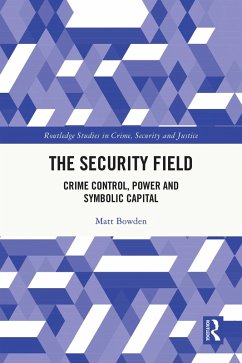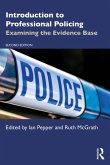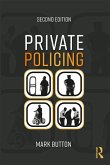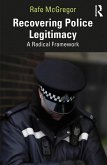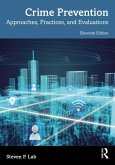Drawing from Bourdieu's concept of field, this book builds a theory of the security field based upon a series of in-depth interviews with security actors such as senior police officers, NGOs, private security professionals, government officials and community safety workers in Ireland. It demonstrates how security producers compete for cultural capital in its many forms - as data, information and relationships - and ultimately as a way of cementing their positions in this emerging field. It shows the dominant power of the formal police and central government in shaping and ordering this relational space. In doing so, The Security Field: Crime Control, Power and Symbolic Capital builds an empirical case from three distinct areas of security production: urban security, community safety and the connections between regulated private security and public crime prevention. It explores the challenges of securitisation in respect of public safety, security and rights and the way in which social problems such as drug use, homelessness and urban marginality are recast as 'security' concerns.
An accessible and compelling read, this book will appeal to students and scholars of criminology, sociology, urban studies and security studies.
Dieser Download kann aus rechtlichen Gründen nur mit Rechnungsadresse in A, B, BG, CY, CZ, D, DK, EW, E, FIN, F, GR, HR, H, IRL, I, LT, L, LR, M, NL, PL, P, R, S, SLO, SK ausgeliefert werden.
Gorazd Mesko, Professor of Criminology, Faculty of Criminal Justice and Security, University of Maribor, Slovenia
'Analysis of how crime prevention and security operate in society are always enhanced by delving into how this is a contentious and deeply fought-for territory. This book goes further by proposing a conceptual framework for thinking about the security field using ideas from Bourdieu that many criminologists have heard of, but rarely use - and does this in a remarkably accessible way. This truly is essential reading for anyone interested in security and crime prevention.'
Amanda Kramer, Senior Lecturer, School of Law, Queen's University Belfast
'After a long slow drip, Bourdieusian criminology has gathered into a steady stream and Matt Bowden's new book might just flood the gates. This is a work of serious scholarship that combines flinty analysis of plural policing practices with a forceful case for a comprehensive sociology of securitisation in the twenty-first century. You may never feel secure again.'
Alistair Fraser, Professor of Criminology and Sociology, University of Glasgow

